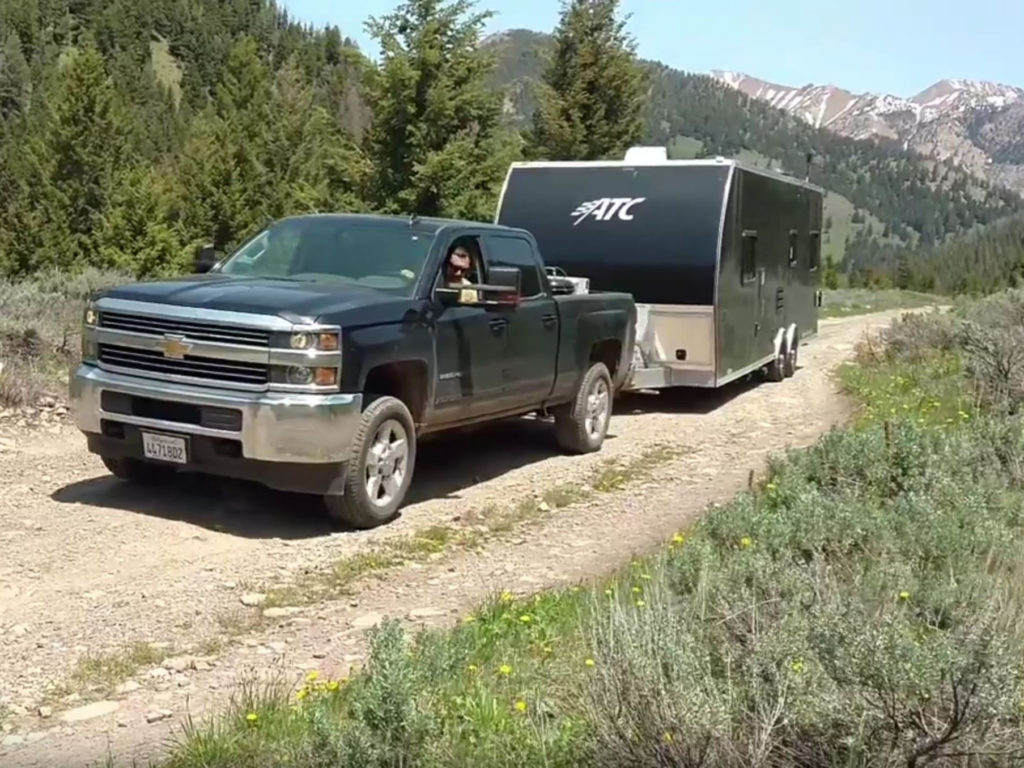Some RVers are concerned that driving their motorhome or towing a trailer over rocky, bumpy roads will damage their RV. It depends on how rocky and bumpy the roads are.

Will Rocky, Bumpy Roads Damage my RV?
Once you get off of pavement, most roads generally start off fairly well graded and smooth, aside from normal washboarding. Often times, the U.S. Forest Service and the Bureau Land Management will create gravel roads that branch directly off of pavement wide enough for both directions of traffic, and smooth enough for all vehicles.
It’s the smaller dirt roads that branch off the larger dirt roads that tend to get rocky and bumpy. Once you get deep enough into open, public lands, you may encounter sandy washes, rutted roads, holes, dips, boulders, etc., that make navigation tough and slow.
The best answer to this issue is to understand the limitations of your truck and trailer or motorhome. To do this, you’ll have to spend some time taking it down dirt roads to gain some knowledge of what your RV can handle. Know that pickup trucks are generally pretty rugged and can take a lot of punishment. It’s the RV however, that are built to lesser standards and may suffer damage.
Poorly Built RVs
The RV manufacturing industry has a tendency to build units quickly and cheaply. This is because there aren’t any government standards on build quality, or how well an RV should resist the elements. They’ve also designed lower quality trailers using thinner wood, more plastic, and relying on glues and staples. Most of these trailers are sold with the words, “Light” or “Lite” in the name. With RVs becoming more fragile, and warranty periods shrinking, it’s no wonder that many RVers are concerned about boondocking.
The only solution towards determining how much punishment your RV can take, is to experiment, and try taking your RV down a few dirt roads, and then examining your RV to see how it handles.
Your Warranty Does Not Exclude Boondocking
As long as your RV is covered under warranty, now is the time to experiment with boondocking. Should your RV suffer damage as a result of the shaking, jolting, and vibrations of a rocky, bumpy dirt road, it’s still covered under warranty. Albeit, no one wants their RV to fall apart on them, and then have to deal with warranty people and repair shops. Still, don’t wait until after the warranty expires to finally try some boondocking.
What Most Boondockers Do
Full time boondockers always go slow. They’re never in a hurry. Washboarded roads will rattle a lot of things loose on your rig. There’s a myth that if you drive faster on a washboarded road, you can smooth out the bumps. But, that doesn’t work for all washboarded roads. Just go slow.
Boondockers also get into the habit of unhooking their trailer or toad somewhere on wide, firm land, and then scope out the road ahead. No one wants to get stuck trying to reverse out of soft sand or a boulder-laden road.
Most boondockers are do-it-yourselfers. So even if something does rattle loose, they don’t mind fixing it. They’ll go ahead and roll their RV over bumps, dips, and ruts to get to the quieter campsites. Hence, if you plan to spend more time boondocking on open lands, take the attitude that doing your own fixes goes with the territory.
On the Other Hand
But, if you’re the type that doesn’t want to take things apart and try to figure things out, and you have a “light” or “lite” RV, and your warranty is running out, then perhaps you’re better off keeping your rig on pavement.

